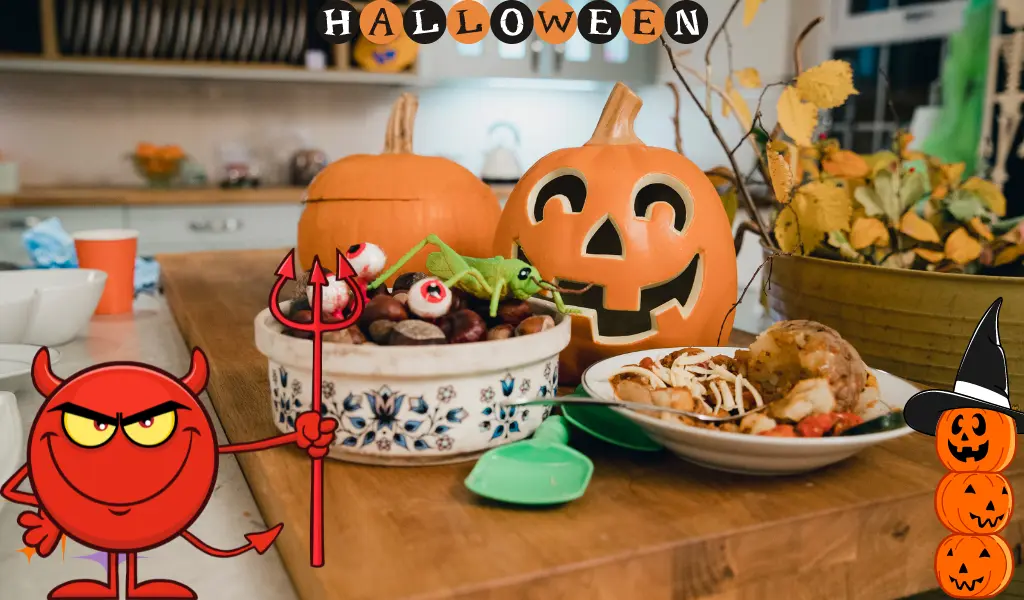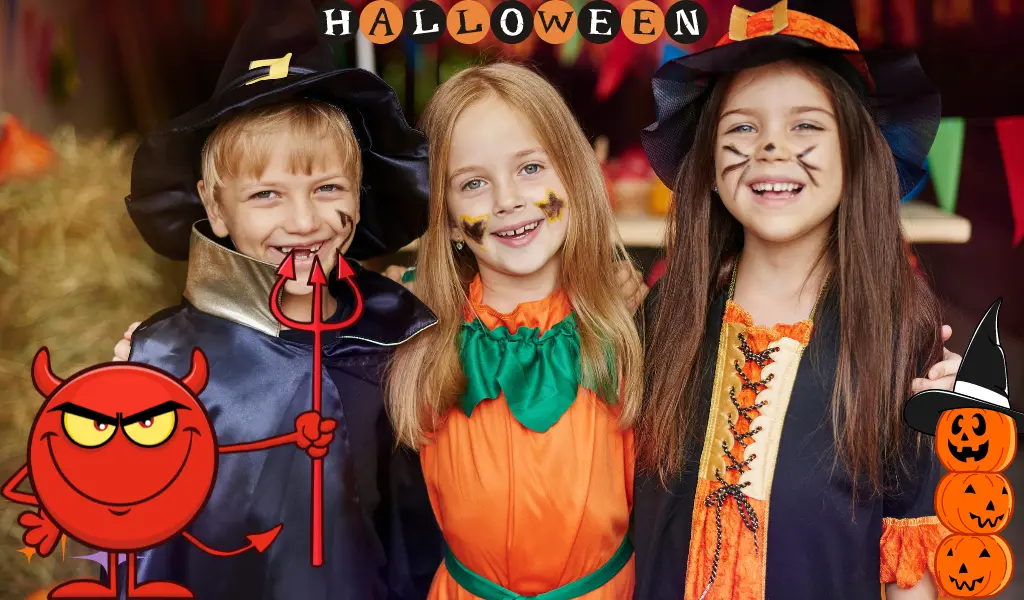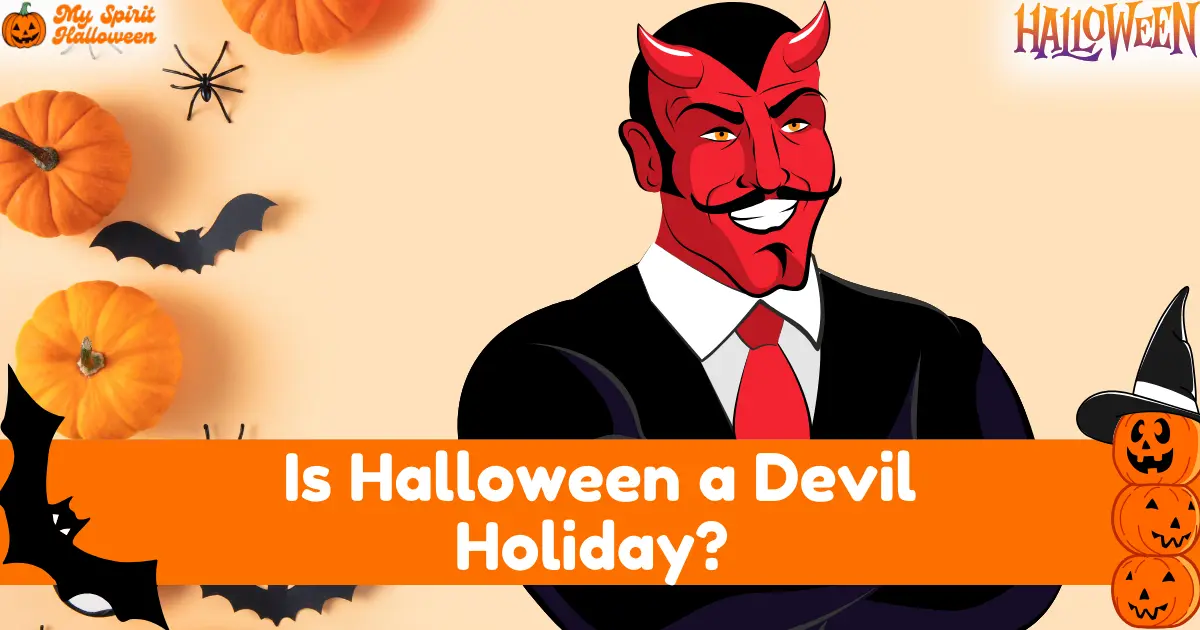
Halloween, celebrated every October 31st, often sparks debates about whether it is a devil holiday. Amidst the fun of costumes and trick-or-treating, some people question if this festive occasion has dark or malevolent origins.
In this article, we will discuss the historical roots of Halloween, examine its symbolism, and address common misconceptions to provide a clear understanding of whether Halloween truly qualifies as a devil holiday.
Is Halloween a Devil Holiday?
No, Halloween is not a devil holiday. It originated from ancient Celtic festivals like Samhain, which marked the end of the harvest season and evolved through Christian traditions such as All Hallows’ Eve.
Modern Halloween is primarily a secular celebration characterized by costumes, trick-or-treating, and festive activities. While some myths and misconceptions link Halloween to devil worship, these claims are largely unfounded.
The holiday’s traditions and symbols are rooted in cultural and historical practices rather than any form of satanic worship.
Historical Origins of Halloween
The roots of Halloween trace back to ancient Celtic festivals, particularly Samhain, a celebration that marked the end of the harvest season and the beginning of winter.
Samhain, observed from October 31st to November 1st, was believed to be a time when the boundary between the living and the dead was particularly thin. During this period, Celts would light bonfires and wear costumes to ward off ghosts.
With the spread of Christianity, the church sought to replace pagan festivals with Christian observances.
This led to the establishment of All Hallows’ Eve on October 31st, the night before All Saints’ Day on November 1st.

Over time, All Hallows’ Eve was shortened to Halloween. The blending of Celtic and Christian traditions resulted in the modern Halloween we know today.

Halloween and Its Symbolism: Understanding the Meanings
Modern Halloween is characterized by symbols such as jack-o’-lanterns, costumes, and dark themes. The practice of carving pumpkins into jack-o’-lanterns originated from an Irish legend about a man named Stingy Jack, who was said to wander the earth with a carved turnip lantern.
The pumpkin, a more readily available and visually striking vegetable, eventually replaced the turnip in American traditions.
Costumes, originally worn to disguise oneself from wandering spirits, have evolved into a popular aspect of Halloween.
While the dark themes and eerie decorations can seem unsettling, they are largely rooted in the playful and festive nature of the holiday rather than any nefarious intent.
Religious Perspectives on Halloween
Religious perspectives on Halloween vary widely. For many Christians, Halloween is seen as an opportunity for fun and community rather than a celebration of anything malevolent.
Some Christian groups, however, express concern about Halloween’s connections to pagan rituals and occult practices.
These concerns often stem from a desire to avoid anything perceived as contradictory to Christian teachings.
Jewish and Islamic perspectives on Halloween also vary. While some Jewish and Islamic communities may choose not to participate due to differing cultural practices or religious beliefs, others may engage in Halloween activities as part of broader cultural experiences.
Common Misconceptions about Halloween
The belief that Halloween is a devil holiday is often fueled by misconceptions and misinformation. One common myth is that Halloween rituals are inherently satanic or occultic.
In reality, most Halloween customs, such as trick-or-treating and costume parties, have secular origins and are enjoyed by people of various faiths and backgrounds.
These practices are meant for celebration and community, not for any form of ritualistic or malevolent purpose.
These misconceptions can be traced back to historical events, such as the Salem witch trials and various moral panics, which often exaggerated or misrepresented the nature of Halloween traditions.
Additionally, sensational media portrayals and extremist viewpoints have contributed to the spread of these myths.
By examining the evidence and expert opinions, it becomes clear that Halloween’s association with devil worship is largely unfounded and not supported by historical or contemporary practices.

Why Some People Believe Halloween is a Devil Holiday
The belief that Halloween is a devil holiday is often rooted in fear and misunderstanding. Certain extremist religious groups may promote this view as part of a broader agenda to condemn anything they perceive as contrary to their beliefs.
Additionally, sensational media portrayals and conspiracy theories can contribute to the spread of these beliefs.
It’s important to recognize that Halloween’s practices, such as costume-wearing and trick-or-treating, are derived from historical traditions rather than any form of occult ritual.
Understanding the true origins and nature of Halloween can help dispel these fears. By focusing on the holiday’s historical evolution and its role in contemporary culture, we can better appreciate Halloween as a festive occasion rather than a sinister one.
Educating ourselves about the cultural significance of Halloween can foster a more inclusive and informed perspective on this widely celebrated event.
Conclusion
The notion that Halloween is a devil holiday is largely a misconception fueled by misinformation and fear.
The holiday’s origins are rooted in ancient Celtic and Christian traditions, and its modern celebrations focus on community, creativity, and fun rather than any form of hostility.
Understanding Halloween’s true history and symbolism reveals that it is a festive occasion enjoyed by people of various backgrounds and beliefs.
By dispelling the myths surrounding this question, we can appreciate Halloween for what it truly represents—a time for celebration and enjoyment.
FAQs
Some people believe Halloween is a devil’s holiday due to misconceptions and misinformation. Extremist religious views and sensational media portrayals contribute to this belief. In reality, Halloween’s customs are largely secular and culturally festive.
No, Halloween traditions are not associated with devil worship. Most customs, such as trick-or-treating and costume parties, have secular origins and are meant for celebration. The association with devil worship is a myth without a historical basis.
Halloween evolved from Celtic and Christian traditions, combining ancient practices with Christian observances. Over time, it became a secular celebration characterized by costumes, trick-or-treating, and festive activities, reflecting its modern cultural significance.
Halloween symbols include jack-o’-lanterns, costumes, and spooky decorations. Jack-o’-lanterns originate from Irish folklore, costumes were once worn to ward off spirits, and spooky decorations reflect the holiday’s playful, eerie themes rather than any sinister intent.
Related Post
- Does Jewish Celebrate Halloween?
- Should Catholics Celebrate Halloween?
- Does Germany Celebrate Halloween?
- Does France Celebrate Halloween?
- Does Mexico Celebrate Halloween?


